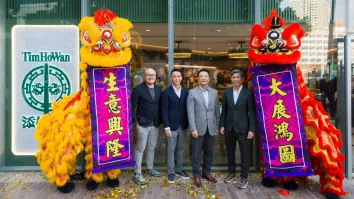
How are geopolitical conflicts triggering brand boycotts in Southeast Asia?
In Malaysia, 70% of consumers participate in boycotts.
Geopolitical conflicts like the Israel-Hamas war are increasingly triggering brand boycotts, with Southeast Asian consumers leading the charge, according to GlobalData.
“Several well-known brands have been negatively impacted by consumers boycotting companies they believe to be pro-Palestine or pro-Israel,” said Shravani Mali, consumer analyst at GlobalData.
“This can be substantiated through a GlobalData Consumer Survey, wherein 48% of respondents across the globe strongly/somewhat agree that they are boycotting products from certain brands due to recent wars and conflicts,” he added.
However, in Malaysia and Indonesia, this sentiment is even stronger, with 70% and 69% of consumers, respectively, participating in boycotts.
Deepak Nautiyal, Consumer and Retail Commercial Director for APAC and the Middle East at GlobalData, highlighted the economic fallout. Americana Restaurants International, which operates KFC and Pizza Hut across the Middle East and North Africa, reported a 15% revenue drop and laid off 100 employees due to the conflict.
Fast-food giants like McDonald’s, Starbucks, Burger King, and Taco Bell are also feeling the impact of the Israel-Hamas conflict. Starbucks, for instance, reported a 2% drop in consolidated net revenues in Q2 2024. In Malaysia, QSR Brands Holdings Bhd temporarily closed over 100 KFC outlets as part of the backlash against Western brands.
Nautiyal emphasises that boycotts are reshaping consumer behavior, forcing brands to adapt to an increasingly complex geopolitical landscape.
“Given the widespread penetration of social media, the impact of regional conflicts is spreading beyond the immediate neighborhood, as evident from the boycotts in Malaysia,” he said.
“Companies must adapt to these situations by enhancing their risk management strategies to navigate the complexities,” Nautiyal added.

















 Advertise
Advertise







